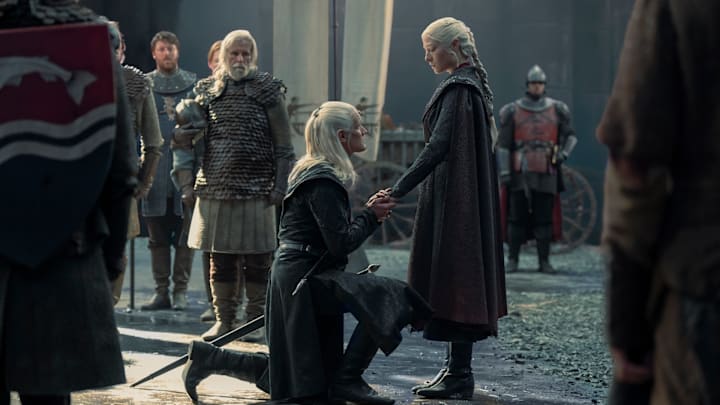Warner Bros. Discovery is reporting its earnings for the first quarter of 2025, and despite drops in things like linear advertising, the company is coming out looking fairly good, in part because they put so much focus on HBO.
HBO has been consistently successful for decades, and WBD CEO David Zaslav thinks it's now going through the strongest period in its 53-year history. Thanking HBO and Max content chief Casey Bloys, Zaslav laid out the strategy for HBO going forward, per Deadline. “The idea of, it’s not how much, it’s how good is something we identified,” he said. “We’re not going to flood the zone. We want to be telling the best stories and we want to also be taking advantage of all of the great quality content over the years, like Game of Thrones and come out with House of the Dragon.”
"More and more, that’s the future of Max, is quality, quality, quality. And that’s why I think we’re seeing a lot of the growth, and that’s why we think we have a great future."
Max and HBO aren't exactly the same thing...but also Max used to be called HBO Max so they kind of are. In any case, Max had 122.3 million global streaming subscribers by the end of March, a decent increase over the last quarter as the streaming service rolled out in new markets like Australia and Turkey.
Shows like House of the Dragon have helped bring in subscriber dollars. The splashy Game of Thrones prequel series is currently shooting its third season, which is due out sometime in 2026. Later this year, HBO will debut a new Game of Thrones prequel show called A Knight of the Seven Kingdoms. Having two Game of Thrones shows on at once does seem to come close to "flooding the zone," something Zaslav says they don't want to do, but HBO's reputation for quality is such that I'm willing to roll with it.
HBO is committed to releasing one episode per week
Zaslav also talked about HBO's committment to releasing new episodes of shows one per week, an old-fashioned method that streaming services have modified; Prime Video, for example, often drops the first few episodes of a new season of TV all together, and then releasing them one per week after that. Netflix has largely done away with the practice altogether, dumping new seasons all at once.
Personally, I like that at least one network is sticking to this older model. Zaslav thinks it makes HBO shows feel like “must-see TV,” borrowing a phrase from NBC, his old employer. "That’s part of a philosophy at this company of great storytelling with a shared experience,” he said.
Zaslav also thinks the one-episode-per-week model "makes stars." He didn't mention Netflix by name but it's pretty clear he's critiquing them here: “People feel that they really get to know people in a way that’s different than just watching eight episodes in eight hours on a Sunday afternoon.”
I like the HBO model, although I wish they produced more episodes per season — the second season of House of the Dragon was cut down from 10 episodes to eight way too close to production time, resulting in awkward pacing — and that they didn't wait so long to renew shows. It's true that HBO shows reliably inspire discussion when they come out, but asking fans to wait two years between new seasons of story-driven shows like The Last of Us and House of the Dragon is onerous, no matter how good they are when they arrive.
To stay up to date on everything fantasy, science fiction, and WiC, follow our all-encompassing Facebook page and Twitter account, sign up for our exclusive newsletter and check out our YouTube channel.
